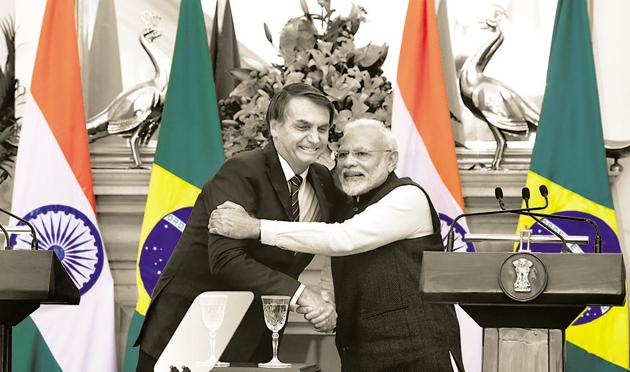Analysis| Brazil-India ties offer a world of opportunities
It is essential that our countries continue to work together to check the barriers that hinder the movement of goods
My first visit to India has been a source of great enthusiasm to me. After all, it is a country with which Brazil shares many similarities and complementarities, be they social, economic or cultural.

Cooperation in the area of ethanol production is certainly a topic of much interest to all, and I see a great opportunity for partnership between our two countries. Brazil has developed a wide and successful biofuels programme, which uses crops as raw materials for the generation of clean and renewable energy. Brazil and India have been growing sugarcane for centuries, and both countries recognise the major socioeconomic importance of this crop. However, with regard to ethanol, there is a great disparity between us: While Brazil is the world’s second biggest producer, with over 30 billion litres per annum, India produced only 1.5 billion litres in 2018.
Replacing fossil fuels with clean energy, such as ethanol, has the potential to reduce pollution in large urban centres, as biofuel-powered vehicles emit much less carbon dioxide than diesel or petrol engines. In addition, the use of ethanol will contribute to reducing India’s need for oil imports and, together with policy reforms in the sugar sector, will provide a solution to excess global sugar supply, providing greater price stability for this commodity, and thus benefiting both countries.
Another area of great interest to us both is that of genetic improvement. Brazil and India own large zebu cattle herds, and we share an interest in exchanging genetic material to improve their quality. During this trip, our countries signed a Joint Statement under which Embrapa, the Brazilian Agricultural Research Corporation, shall provide training to Indian researchers on in vitro fertilisation techniques. In addition, our countries shall collaborate on the installation and operation of a Centre of Excellence in Dairy Farming in India.
With regard to bilateral trade, there is great potential for expansion in several sectors, and agriculture in particular. Our current trade agenda is highly concentrated. There is, therefore, much room to expand and diversify our exchanges in both directions.
On this visit headed by President Jair Bolsonaro, we took the first step towards that goal by opening the Indian market for Brazilian sesame seeds, and the Brazilian market for Indian corn seeds. However, timid this step might seem, it ought to be considered the herald of a new age in which both countries are committed to working together for the expansion of their bilateral agenda.
The Mercosur and India Preferential Trade Agreement has been in force since 2009. However, the agreement is rather limited, especially with regard to agriculture, where the coverage ratio is less than 10% of our bilateral trade.
Brazil is willing to engage in efforts to substantially expand this agreement in order to further contribute to diversifying and increasing our trade. I, therefore, believe it is essential that our countries continue to work together in order to overcome the barriers that hinder the free movement of goods.
As I said at the beginning, we have a lot in common, and our similarities and complementarities justify a much closer and deeper relationship.
Tereza Cristina Corrêa da Costa Dias is Brazil’s minister of agriculture, livestock and supply
The views expressed are personal






